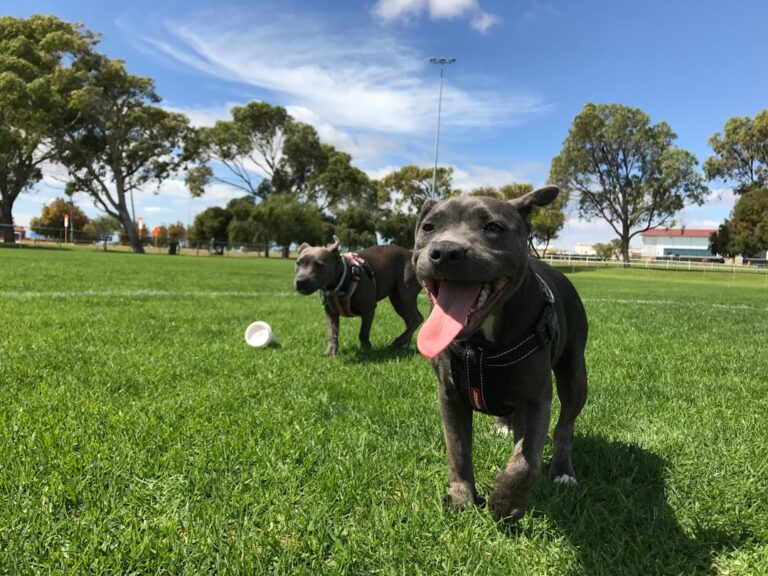Regular veterinary visits are a cornerstone of responsible pet ownership, serving as a proactive measure to ensure the health and well-being of pets. These check-ups allow veterinarians to monitor the overall health of animals, catch potential issues early, and provide necessary vaccinations. Just as humans benefit from routine medical examinations, pets require similar attention to detect any underlying health problems that may not be immediately apparent.
For instance, conditions such as diabetes or kidney disease can develop gradually, and regular vet visits can help identify these issues before they become critical. Moreover, routine veterinary visits foster a strong relationship between the pet owner and the veterinarian. This relationship is vital for effective communication regarding the pet’s health, behavior, and lifestyle.
During these visits, pet owners can discuss any concerns they may have, from dietary questions to behavioral changes. The veterinarian can provide tailored advice based on the pet’s specific needs, ensuring that both the owner and the pet are well-informed about the best practices for care. This ongoing dialogue is essential for maintaining a pet’s health and can lead to better outcomes in terms of longevity and quality of life.
Key Takeaways
- Regular vet visits are crucial for maintaining your pet’s overall health and catching any potential issues early on.
- Vaccinations and preventative care can help protect your pet from serious and potentially deadly diseases.
- Dental health is important for pets and regular dental care can prevent dental disease and other health issues.
- Parasite prevention and control is essential for keeping your pet healthy and free from harmful parasites.
- Proper nutrition and weight management are key to ensuring your pet stays healthy and maintains a healthy weight.
Vaccinations and Preventative Care
Vaccinations are a critical component of preventative care for pets, protecting them from a variety of infectious diseases that can be severe or even fatal. Core vaccinations, such as those for rabies, distemper, and parvovirus, are essential for all pets, while non-core vaccines may be recommended based on the pet’s lifestyle and risk factors. For example, a dog that frequently interacts with other dogs at parks or boarding facilities may benefit from the Bordetella vaccine to prevent kennel cough.
By adhering to a vaccination schedule recommended by a veterinarian, pet owners can significantly reduce the risk of their pets contracting these diseases. Preventative care extends beyond vaccinations; it encompasses a range of services designed to maintain a pet’s health. Regular wellness exams often include blood tests, fecal examinations, and screenings for parasites.
These tests can reveal issues such as heartworm disease or intestinal parasites that may not show immediate symptoms but can lead to serious health complications if left untreated. Additionally, preventative care includes discussions about lifestyle factors such as exercise and diet, which are crucial for maintaining a healthy weight and preventing obesity-related conditions.
Dental Health for Pets

Dental health is an often-overlooked aspect of pet care that can have significant implications for overall health. Just like humans, pets can suffer from dental diseases such as periodontal disease, which can lead to pain, tooth loss, and systemic health issues if bacteria from the mouth enter the bloodstream. Regular dental check-ups at the veterinarian are essential for identifying early signs of dental disease and implementing appropriate treatment plans.
Professional cleanings may be necessary to remove tartar buildup and prevent more serious conditions. In addition to professional care, pet owners play a crucial role in maintaining their pets’ dental health at home. Daily brushing is ideal, but even a few times a week can make a significant difference.
There are also dental treats and toys designed to help reduce plaque and tartar buildup. Educating pet owners about the importance of dental hygiene is vital; many may not realize that poor dental health can lead to other health issues such as heart disease or kidney problems. By prioritizing dental care, pet owners can enhance their pets’ quality of life and longevity.
Parasite Prevention and Control
| Parasite | Prevention Method | Control Method |
|---|---|---|
| Fleas | Regular use of flea prevention products such as spot-on treatments or oral medications | Use of flea control products in the environment, such as sprays or foggers |
| Ticks | Use of tick prevention products such as collars or topical treatments | Regular checking for ticks and prompt removal if found |
| Heartworms | Monthly administration of heartworm prevention medication | Treatment with medication to kill adult heartworms if infection is detected |
| Intestinal Worms | Regular deworming with medication prescribed by a veterinarian | Treatment with specific deworming medication based on the type of intestinal worm present |
Parasite prevention is an essential aspect of pet care that protects both pets and their owners from various health risks. Common parasites such as fleas, ticks, and worms can cause discomfort for pets and lead to serious health issues if not managed effectively. Fleas can cause skin irritations and allergic reactions, while ticks can transmit diseases like Lyme disease or Rocky Mountain spotted fever.
Intestinal worms such as roundworms or hookworms can lead to malnutrition and other gastrointestinal problems. Regular veterinary visits allow for appropriate testing and treatment options tailored to each pet’s needs. Preventative measures against parasites typically include monthly treatments in the form of topical solutions or oral medications.
These products not only kill existing parasites but also provide ongoing protection against future infestations. Additionally, maintaining a clean living environment is crucial; regular grooming, vacuuming, and washing bedding can help minimize the risk of flea infestations. Pet owners should also be educated about the importance of checking their pets for ticks after outdoor activities, especially in wooded or grassy areas where ticks are prevalent.
Nutrition and Weight Management
Proper nutrition is fundamental to a pet’s overall health and well-being. A balanced diet tailored to a pet’s specific needs—considering factors such as age, breed, size, and activity level—can prevent obesity and related health issues like diabetes or joint problems. Pet food labels can be confusing; therefore, consulting with a veterinarian about the best dietary options is essential.
They can recommend high-quality commercial diets or advise on homemade diets that meet nutritional standards. Weight management is another critical aspect of pet care that requires ongoing attention. Obesity in pets has reached epidemic proportions in recent years, with studies indicating that nearly 60% of dogs and cats in the United States are overweight or obese.
This condition not only shortens a pet’s lifespan but also increases the risk of developing chronic diseases such as arthritis or heart disease. Regular weigh-ins at veterinary visits can help track a pet’s weight over time, allowing for timely interventions if weight gain is noted. Additionally, incorporating regular exercise into a pet’s routine is vital; activities such as daily walks or playtime can help maintain a healthy weight while strengthening the bond between pet and owner.
Spaying and Neutering

Spaying and neutering are surgical procedures that offer numerous benefits for both pets and their owners. These procedures not only prevent unwanted litters but also contribute to better health outcomes for pets. For instance, spaying female pets significantly reduces the risk of uterine infections and breast tumors, while neutering male pets decreases the likelihood of testicular cancer and certain prostate issues.
Furthermore, spaying and neutering can lead to improved behavior; altered pets are often less aggressive and less likely to roam in search of mates. The decision to spay or neuter should be made in consultation with a veterinarian who can provide guidance on the appropriate age for these procedures based on the pet’s breed and health status. Many animal shelters and rescue organizations advocate for spaying and neutering as part of responsible pet ownership to combat overpopulation issues.
By reducing the number of unwanted animals in shelters, these procedures play a crucial role in promoting animal welfare.
Managing Chronic Conditions
Chronic conditions in pets require ongoing management to ensure their quality of life remains high. Common chronic conditions include arthritis, diabetes, allergies, and heart disease. Each condition presents unique challenges that necessitate tailored treatment plans involving medication, dietary adjustments, and lifestyle changes.
For example, pets with arthritis may benefit from anti-inflammatory medications combined with joint supplements like glucosamine or omega-3 fatty acids to alleviate pain and improve mobility. Regular veterinary visits are essential for monitoring chronic conditions effectively. Veterinarians can adjust treatment plans based on how well a pet responds to therapy or if new symptoms arise.
Additionally, educating pet owners about recognizing signs of worsening conditions is vital; early intervention can prevent complications and improve outcomes significantly. Support groups or online forums can also provide valuable resources for owners managing chronic conditions in their pets.
Emergency Care and First Aid
Understanding emergency care and first aid is crucial for all pet owners, as accidents and sudden illnesses can occur without warning. Familiarizing oneself with basic first aid techniques—such as how to perform CPR on pets or how to control bleeding—can make a significant difference in critical situations. For instance, knowing how to safely transport an injured animal to a veterinary clinic is essential; using a sturdy blanket or board can help stabilize an injured pet during transport.
In addition to first aid knowledge, having an emergency plan in place is vital for every pet owner. This plan should include contact information for local emergency veterinary clinics, as well as a list of any medications or medical history relevant to the pet’s care. Preparing an emergency kit with essential supplies—such as bandages, antiseptic wipes, and any necessary medications—can also be beneficial during unexpected situations.
By being proactive about emergency preparedness, pet owners can ensure they are ready to act swiftly when their pets need immediate care.












